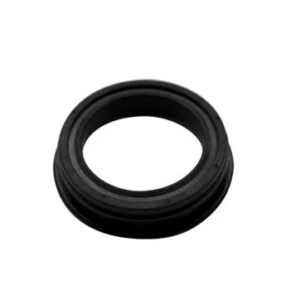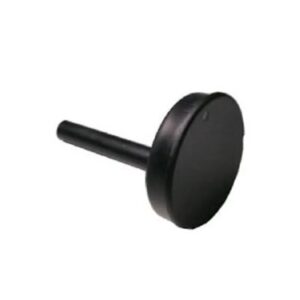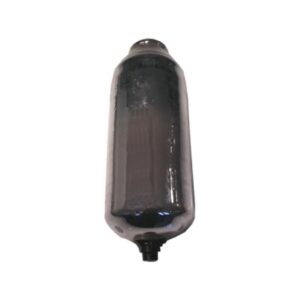Hej, during my recent visit to Copenhagen, I had the opportunity to speak with Michael Ring, the CEO of Stelton, about replicas. The EM77 by Erik Magnussen is one of the Danish design classics. But, such icons are often copied. In this interview, Michael Ring explains why the original is sustainable while the replica is not.
The interview as a video
Sie sehen gerade einen Platzhalterinhalt von Youtube. Um auf den eigentlichen Inhalt zuzugreifen, klicken Sie auf die Schaltfläche unten. Bitte beachten Sie, dass dabei Daten an Drittanbieter weitergegeben werden.
The EM77 by Erik Magnussen: A Timeless Design Classic

The EM77 insulated jug by Erik Magnussen is undoubtedly a timeless design classic. Since its introduction in 1977, it has gained worldwide recognition for its unique design and outstanding functionality. It is unfortunate that such icons are often replicated, raising questions about sustainability.
Why the Original is Sustainable
Michael Ring emphasizes that the original product, manufactured by the brand Stelton, is sustainable. Stelton follows a philosophy of quality and longevity, both in terms of materials and production. The EM77 is made with high-quality materials and undergoes strict quality controls to ensure long-lasting performance. The jug is designed to be used for years without compromising on quality or functionality. If something breaks, you can buy replacement parts.
The Negative Impact of Replicas
In contrast, replicas have negative impacts on sustainability. Often, inferior materials are used in their production, lacking the same durability and quality as the original. Replicas are typically produced quickly and cost-effectively, disregarding environmental standards or ethical labor practices. This leads to shorter product lifespans and increased waste generation.
The Importance of Originality and Quality
Michael Ring said that originality and quality are crucial when it comes to sustainable design. By purchasing the original product, the work of the designer and the brand is acknowledged and supported. It is an investment in a product that meets high standards in terms of materials, production, and longevity. This contributes significantly to environmental protection and promotes sustainable consumption.
Appeal to Consumers
Michael Ring appeals to consumers to make conscious choices and opt for original products. By avoiding replicas and supporting original designs, we can contribute to preserving the value of design and quality while promoting sustainability. It is our responsibility to create a culture of respect for design and the environment.
Overall, the original product, such as the EM77 insulated jug by Stelton, is a sustainable choice that prioritizes quality and longevity. By avoiding replicas and supporting original products, we can make a positive impact on sustainability and preserve the heritage of Danish design classics.
Interview with Michael Ring
Hej, Michael. Please introduce yourself.
Michael Ring: My name is Michael Ring. I’m 62 years old, and in Germany, I am known as the „Unternehmer“ because I own and run the companies Stelton and RIG-TIG. These are two Danish brands that I have owned since 2004. I initially bought a part of the company and eventually acquired the full company. Before that, I was the managing director of Gerog Jensen and Royal Copenhagen, two other Danish international brands.
Maybe you already know that one of ten people in Denmark have replica products from Danish design icons at home. Is that also a challenge for Stelton?
It is. We have some very iconic products, and the one you see, the EM77, here is probably the most well-known around the world. We sell about 300,000 to 500,000 of these products in either ABS or stainless steel, as you can see here. However, overall, we have many copies of our products, and we usually try to resolve the issue without going to court because the legal costs are tremendous. Nine out of ten times, we succeed in stopping the production of the copies, but sometimes we don’t. Currently, we have discovered that someone in China has made a copy of our product. For example, you can clearly see where they got the inspiration from with this one. Then a German or Danish company takes this product, puts their brand on it, and calls it their own product. We try to send them a letter first, informing them that they are jeopardizing our intellectual property rights.
And what we try to do is to get them to take the products out of the market and still maintain a good relationship. Sometimes we are not successful, and then we have to go to court. Our approach is to go public with these incidents, which harms the companies that copy our products. Stelton is a large enough company to be able to afford this approach, but smaller companies may not have the same resources when facing big retail chains or supermarkets. It’s a pity, but that’s how the system works. Going to court is expensive.
But it is maybe also an honor when someone copies your product?
We see it as an honor, but we still have to defend our products because each product is designed by a designer. We have taken one of the most well-known designers, but we also work with smaller designers who may not be as famous as Erik Magnussen, Norman Foster, or Arne Jacobsen. Our obligation to these designers is to defend their designs because they only grant us the production and sales rights. The design rights still belong to the designer, and many of them are not well off financially.
What could be the worst thing when people think they are buying an original product, but it turns out to be a fake, and then they have a bad experience as an end customer?
Well, you see, the thing is, that could be one, but I do not think that’s the main issue. The main issue is that people are always trying to get a good bargain. And this is clearly not the same product because it’s not made out of one piece like EM77. It will not last. And people will then say, „Well, this one costs maybe double the price of this.“ And they might think that we are ripping them off, but we are not. We are making affordable daily living products. I tend to say, if you take the ABS version of the EM77, it costs about the equivalent of a hot dog. And then people say, „A hot dog? How can that be?“ Well, it lasts for more than 20 years. It costs less per year than one hot dog or one good cup of coffee from a coffee shop. And why not have a nice original design, designed by a designer or an architect or an artist, and bring that to your home, where you can have it for 20 years and not tire of looking at it? It’s made superbly instead of taking a rip-off copy where nobody has designed it, there are no rights to it, and it’s just normal greed that has driven them to sell this product.
20 years? Is this product also good because it’s so sustainable. Maybe you can explain why?
And this product is built so that you can easily take it apart. If something breaks, like if you accidentally drop it and the glass insert breaks, you can buy a new glass insert. If you chip off the spout, you can get a new spout. If you break off the handle, you can get a new handle. When it comes to sustainability, the most important aspect is that the product lasts a long time. If we want to create a sustainable future, we need to make fewer but good, sustainable, and long-lasting products.
Spareparts for Stelton EM77











